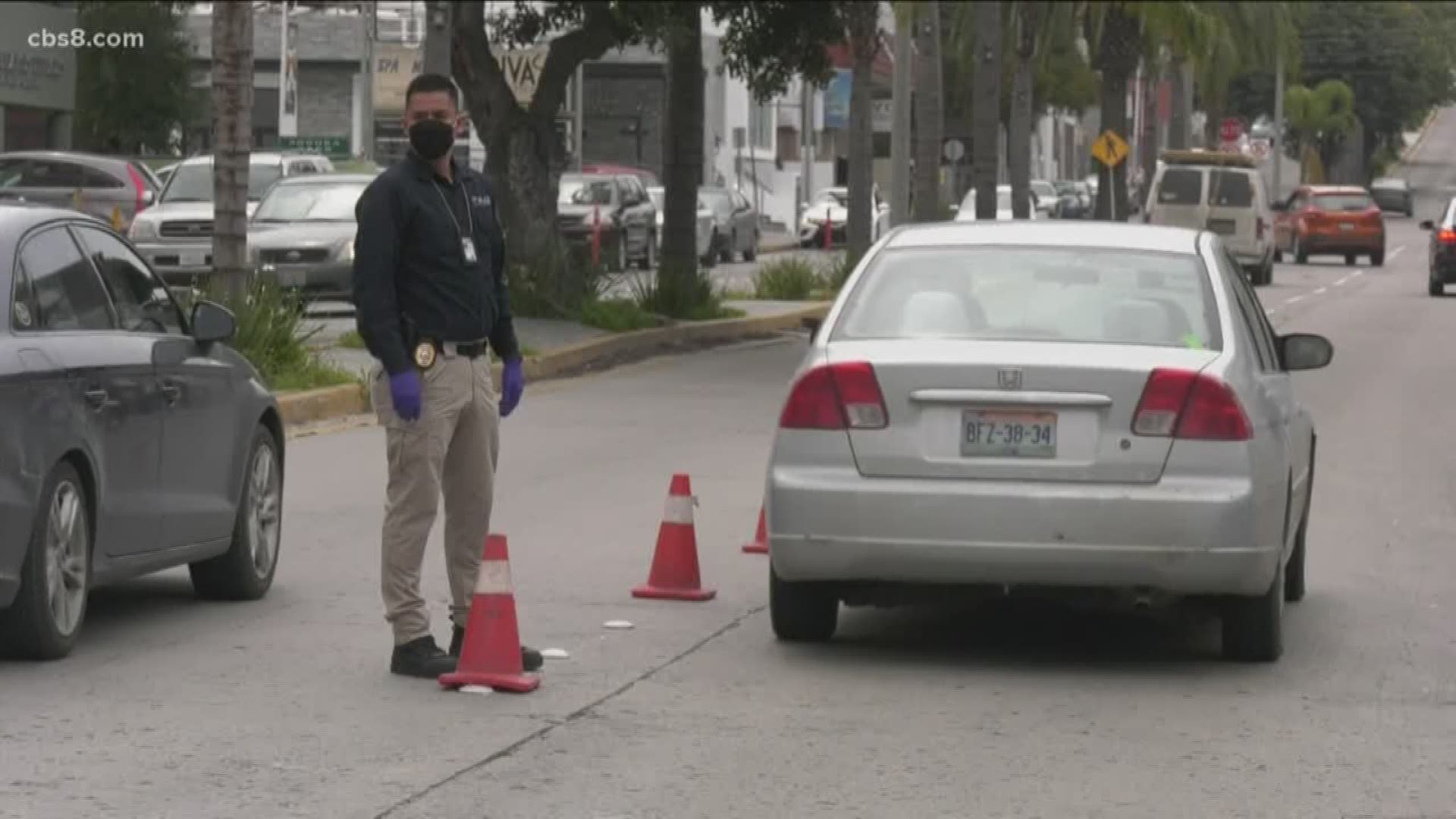BAJA CALIFORNIA, Mexico — Baja California officials have worked to implement a "stay home" order amid the ongoing coronavirus outbreak. The health department confirmed 43 residents tested positive and 149 others are suspected of having COVID-19 in the area.
“If you walk on the street, it must be for a necessity -- because you’re going for food or the doctor or an emergency. If you don’t have that, then staying home is the only way we’re going to beat it,” said Baja California Gov. Jamie Bonilla.
He also said law enforcement in the state is allowed to approach residents to ask why they are out of their homes. Like with orders in California, law enforcement is not forcing people to remain inside.
The government ordered beaches and non-essential businesses to close. Restaurants can serve food for take-out or delivery. Residents were advised to wear a mask and gloves when going outside.
Police in Tijuana spent the week helping to educate the public. Officers set up information points, boarded buses and stopped taxis to discuss the dangers of coronavirus and the importance of handwashing and social distancing.
Health officials expressed concern about Mexicali, which they said is seeing a higher infection rate compared to the rest of the state. Like other parts of the world, Baja California residents with underlying health conditions are most at risk of the most severe symptoms associated with the virus. All three people who died from coronavirus suffered from obesity, diabetes, and hypertension.
Baja California estimated the restrictions will remain in place throughout April. The governor said there were some reports of price gouging that are under investigation. There were also reports of looting at stores where the gouging occurred.
“My recommendation is that they not be voracious about the prices, because they are creating very bad faith throughout the community,” said Bonilla.
Stores and restaurants in tourist areas of the city said they noticed a decline in customers a few weeks ago. On Wednesday, the head of a merchant association estimated businesses on Revolution Ave. were down about 90%.
“It’s hurting us a lot,” said Julian Palombo, President of the Tourist Merchants of Tijuana. “This problem of COVID-19 hurts our economy and brings it to the floor.”
While the federal and state government have pledged some economic help, some vendors were skeptical and were still selling to customers in cars waiting to enter the U.S. at San Ysidro.
“I was a little nervous,” admitted Ricardo Ornelas as he walked among the vehicles. “[Sales] are lousy because nothing is being sold. It’s like we’re walking for the love of it, but there’s no other option but to wait and see what happens.”
-------------------------
NEWS 8 joined forces with The San Diego Foundation to raise IMMEDIATE, EMERGENCY FUNDS for our most vulnerable neighbors in need. Here is how you can help.
Click here to view an interactive map of the current San Diego County cases of coronavirus/COVID-19 as they break down by zip code and city.
BACKGROUND:
According to the CDC, coronavirus (COVID-19) is a family of viruses that is spreadable from person to person. Coronavirus is believed to have been first detected in a seafood market in Wuhan, China in December 2019. If someone is sick with coronavirus, the symptoms they may show include mild to severe respiratory illness, cough, and difficulty breathing.
Currently, there is no vaccine, however, the CDC suggests the following precautions, along with any other respiratory illness:
Avoid close contact with people who are sick.
Avoid touching your eyes, nose, and mouth.
Stay home when you are sick.
Cover your cough or sneeze with a tissue, then throw the tissue in the trash.
Clean and disinfect frequently touched objects and surfaces using a regular household cleaning spray or wipe.
Wash your hands with soap and water for a minimum of 20 seconds.
The CDC also says facemasks should only be used by people who show symptoms of the virus. If you’re not sick, you do not have to wear a facemask.

